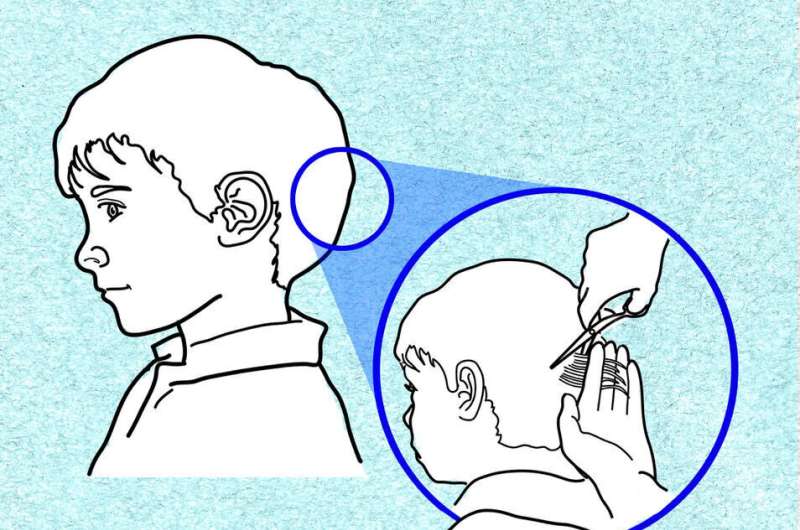Researchers use hair cortisol test to measure stress levels of families during COVID-19

Researchers at NYU Abu Dhabi (NYUAD), in collaboration with Global TIES for Children and researchers at University of California Davis (Paul Hastings and Lindsey Partington) as well as Hashemite University in Jordan (Rana Dajani), have used a hair cortisol test to detect the impact of COVID-19 on stress levels in families.
Titled "Adrenocortical and psychosocial responses of families in Jordan to the COVID-19 pandemic," the paper used samples from cortisol tests of mothers and children taken in 2019 for a previous study, and compared them with cortisol tests conducted in June 2020. The research found that negative changes to family life predicted greater hair cortisol concentration for children, reflecting their cumulative stress experienced over the first three months of the pandemic.
The paper then used these results to analyze the impacts of COVID-19 on families as a result of the pandemic, finding that raised levels of family adversity predicted worse mental health in children and mothers in December 2020.
Assistant Professor of Psychology at NYUAD Antje von Suchodoletz, who led the research, said: "The COVID-19 pandemic has been a global mental health crisis, as well as a physical health crisis. Seeing as the majority of the world's children live in low- and middle-income countries (LMIC), it is imperative to understand the factors that have contributed to their adjustment, as well as the adjustment of their parents, during the pandemic."
Commenting on the need to address these mental health challenges, von Suchodoletz said: "Our research showed that in families experiencing greater disruption, the hair cortisol tests of children and mothers showed evidence of 'stress getting under the skin'. These findings point to the importance of developing programs to address the daily needs of families in LMIC during periods of acute and prolonged crises, and particularly families with few economic resources to draw upon."
The study concluded that without effectively tailored assistance to support the needs of families at risk, the adverse physiological and psychological consequences of the COVID-19 pandemic will likely carry long-term effects on children's future capacities to learn and thrive. Seen in this context, investing in ameliorative efforts would cost less than future expenses incurred by the loss of healthy and productive generations.
The paper is part of a Special Section on the impact of COVID-19 on child development around the world, and has been accepted into Child Development, the leading journal in developmental psychology.




















